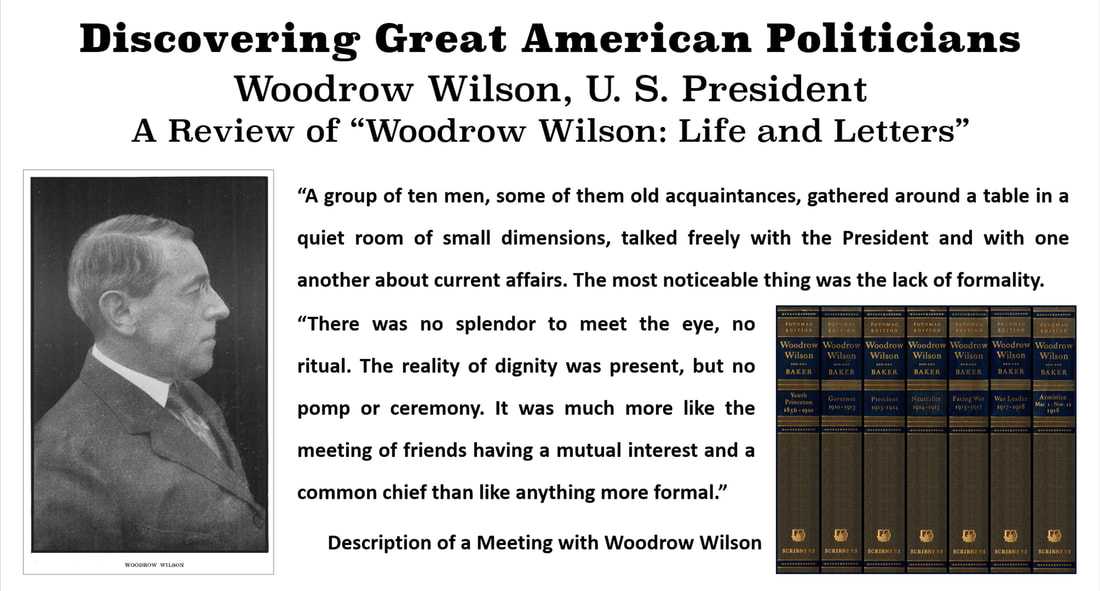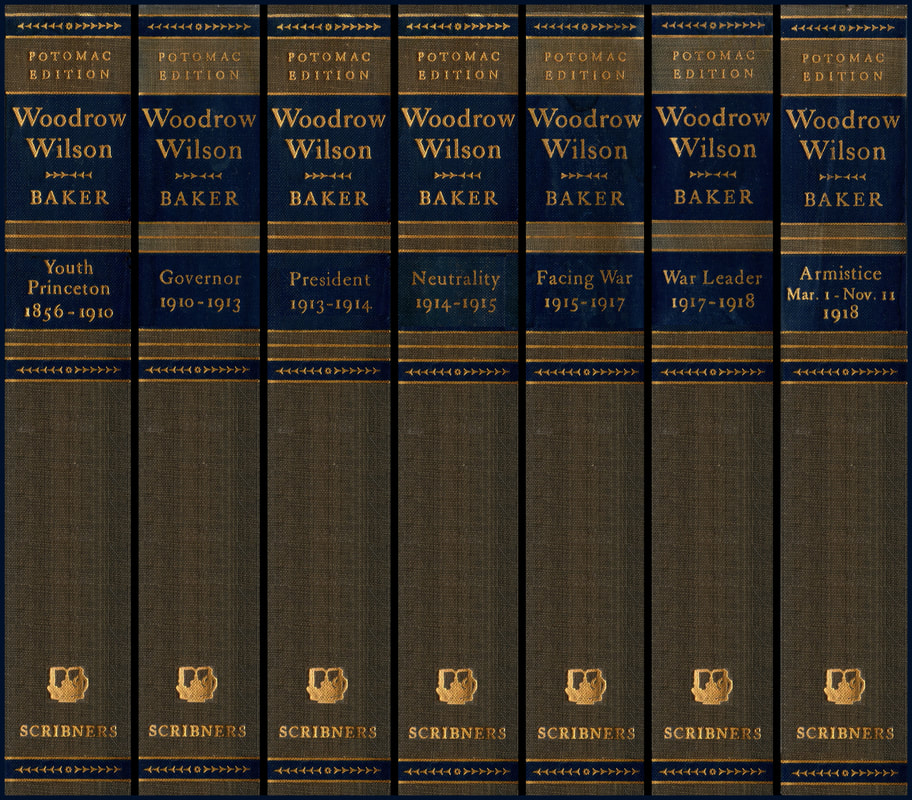Reviews of "Woodrow Wilson: Life and Letters"
|
|
Date Published: July 1, 2021
Date Modified: June 30, 2024 |
These reviews will take a while. Along with other works, Pete is currently reading Volume VII: War Leader (1917-1918). His interest, today, is in Woodrow Wilson's leadership as President of the United States. Currently, he has no plans to read Volumes I through III. The individual volumes tend to stand alone although references are made at times to Woodrow Wilson's character traits that he exhibited throughout his life and in various positions of leadership.
This page provides an overview and links to the individual volumes for which there is a review available.
This page provides an overview and links to the individual volumes for which there is a review available.
Overview of Woodrow Wilson's Life and Letters by Ray Stannard Baker
This is an eight-volume set of books written by Ray Stannard Baker after Woodrow Wilson's death. The journalist and former press secretary for the President had complete and open access to all letters and communications of the President. He also had the support of the President's wife and the couples close associates.
We have two editions of this set of books. One is an eight-volume set as outlined below showing volume number, volume title, and years of coverage. The other is a seven-volume set as pictured below. In the seven-volume set of books, the first two volumes (Volumes I and II) are combined into a single volume.
|
The eight-volume set includes the following:
|
Image of seven-volume set
|
The following is the reason this author has such admiration for Ray Stannard Baker. He challenges his readers not so much with "truths" as with "observations" that so many times brings a reader to a dead stop, to think, and to ask, "Is this true? Why haven't I thought about this before? Do I agree?"
A moral interest is so much harder to keep alive than a material interest, so much more diffused, so uncertain. The realist knows exactly what he wants and how to get it; he is efficient; he produces results that men can see and admire: roads, public buildings, balances in the treasury. The achievements of the idealist, since they are largely hidden in the spirits of men, are hard to demonstrate--such intangible benefits as freedom and justice, international confidence and good feeling, a sensitiveness to human rights, especially the rights of the weak; larger rewards longer delayed.
Ray Stannard Baker, Woodrow Wilson: Life and Letters
Individual Reviews of "Woodrow Wilson: Life and Letters"
Volume IV: Woodrow Wilson: Life and Letters - President (1913–1914)
|
"I now bow my head to the memory of a man who was more—and far more—than I ever thought he was, a man’s man, college professor and all, who dared to defy bossism in all its degrees in the battle for what was right as he saw it and as millions of other good and true Americans saw it."
William A. White, The Pittsburgh Press, December 20, 1931
|
Volume V: Woodrow Wilson: Life and Letters - Neutrality (1914–1915)
|
"That Woodrow Wilson was earnestly desirous of keeping the country neutral can hardly be questioned in view of the evidence produced by Mr. Baker. Though his sympathies were clearly with England, he sought to think as a neutral and to adhere rigidly to a policy of neutrality."
“Wilson and American Neutrality,” Mauritz A. Hallgren,
The Baltimore Evening Sun, January 4, 1936 |
Volume VI: Woodrow Wilson: Life and Letters - Facing War (1915–1917)
|
"This volume ends with President Wilson’s approval of the Congressional resolution that 'the state of war between the United States and the Imperial German Government which has thus been thrust upon the United States is hereby formally declared.' "
“Study of Woodrow Wilson,” Sidney Williams,
The Philadelphia Inquirer, November 13, 1937 |
Volume VII: Woodrow Wilson: Life and Letters - War Leader (1917–1918)
|
|
Volume VIII: Woodrow Wilson: Life and Letters - Armistice (1918)
|
|






